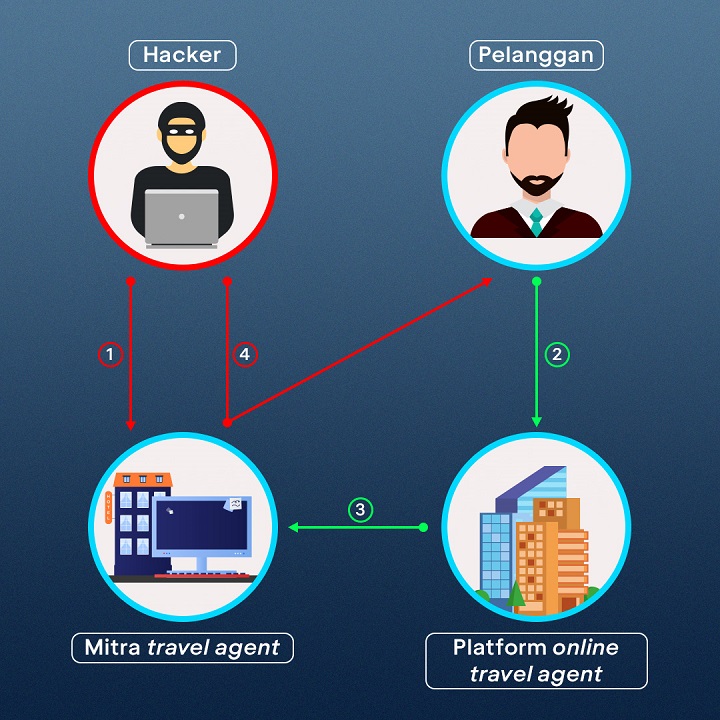Internet scams are becoming more widespread and difficult to predict. One that often occurs is phishing scams or theft of confidential data. This scam is also becoming more prevalent as spyware surges.
Spyware is a type of malicious software (malware) that can penetrate and install on a device unknowingly. It is programmed to steal all data in a computer system, including login data, then sending it to hackers.
Internet users must understand and be vigilant regarding the development of phishing scams due to the rise of spyware. Especially for those who often use the internet to book tickets and hotels through online travel agents. This is because a lot of data is needed in every transaction. Travel agent partners such as hotel operators are also not immune from this spyware attack.
Phishing Scams Through Hotel and Ticket Bookings
The ease of booking hotels and flight tickets for a holiday is indeed a convenience. However, you also need to be vigilant when making transactions. Scammers often take advantage of this moment to commit phishing scams. Booking hotels
Booking hotels and flight tickets is also highly targeted because these activities involve a lot of important data. For example, full name, ID card number, date of birth, and credit card number. Here are the methods used by scammers in the phishing scam mode.
1. Spyware insertion
The first step, hackers will hack into the travel agent’s partner account through spyware. This will allow them to log into the travel agent’s partner account and potentially get all the booking data from customers.
2. Customers make bookings
Online hotel and ticket bookings are made using applications and websites. In the process, customers will then fill in the required data.
3. Data collection by hackers
Given that hackers can log in and enter partner accounts, they can also retrieve all data that been submitted by customers. This data will then be used for various crimes.
4. Deceiving the victim
The next step is to make it seem as if the victim is experiencing a booking problem. These hackers will interact with the victim through official emails, official accounts, or even through the chat feature in the travel agent’s partner account. The hacker appears as an official travel agent partner, sending a message with a link requesting sensitive banking data, such as credit card numbers, cardholder’s name, CVV, and expiry date.

Tips to Avoid Phishing Scams
Check out the following security tips to avoid phishing scams.
1. Choose a trusted official website
It is important for you to choose a trusted travel agent whose procedures are appropriate. A trusted online travel agent will present all these procedures on its website so that you can follow them. This also includes the payment method to the check-in process at the hotel and airport.
2. Extra careful when making payments
The payment process is the part that needs attention. It’s because this process can be targeted by hackers to carry out their actions. Travel agents have a standard process according to the procedures listed on their website. Official travel agents will provide payment invoices through various platforms, from WhatsApp to email. Make sure the beneficiary account number and company name are correct. Avoid sharing banking data, especially credit cards, if it is not in accordance with the payment procedures set by the travel agent.
3. Confirm to all parties
After making a payment, the system will detect and connect to the travel agent, hotel, and airline. You will also get a notification and proof of booking via email. However, it’s still a good idea to confirm with all parties. Make sure the hotel booking has been made on the appropriate date.
4. Always maintain personal data
This part should never be forgotten. You must protect sensitive information and must not share it with anyone. Ignore any party asking for such data for any reason, be it from the bank or travel agent.

